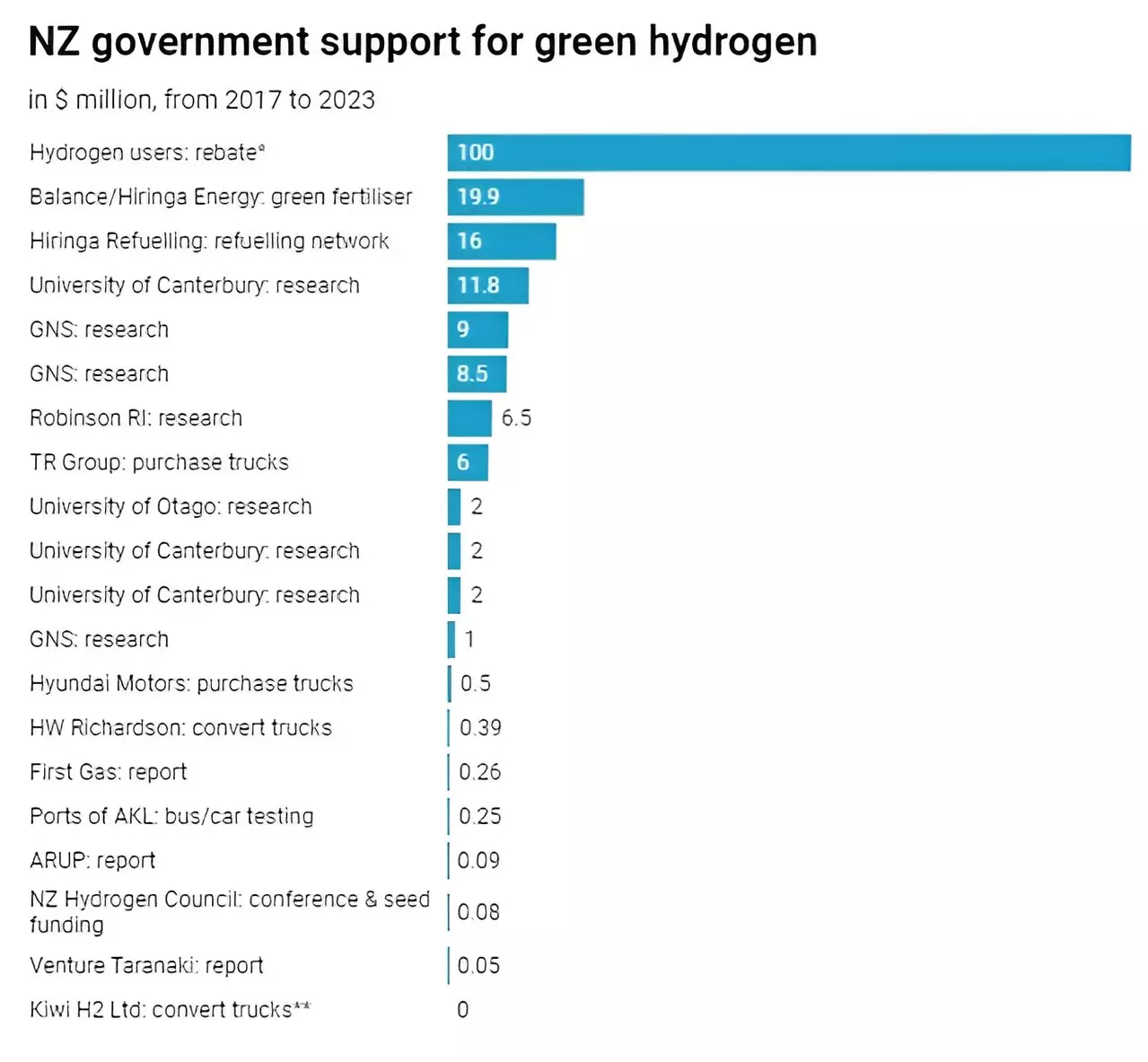The recent setback in the deal to introduce hydrogen-powered trucks in New Zealand, coupled with the removal of a substantial government rebate scheme for green hydrogen users, has cast a shadow of uncertainty over the transition to this promising energy technology. The failure of the US company Hyzon to deliver on their commitment to provide hydrogen fuel-cell trucks is a clear indication of the challenges faced in implementing green hydrogen solutions. Although global interest in hydrogen as a future energy source continues to rise, critical voices have been noticeably absent from the conversation in New Zealand.
Despite the recent setbacks, green hydrogen has attracted significant government support in New Zealand, with an investment of $186.3 million from 2017 to 2023. This funding has been allocated towards the development of a hydrogen refueling network, vehicle conversions, research initiatives, and the establishment of the New Zealand Hydrogen Council (now known as Hydrogen New Zealand). Proponents of green hydrogen argue that it is essential for decarbonizing sectors that are challenging to electrify directly, such as heavy road transport, shipping, and fertilizer production.
An Optimistic Narrative and the Lack of Critical Analysis
The government’s vision for New Zealand as a leader in hydrogen production, as outlined in the H2 Taranaki roadmap, has been met with overall positivity. The reports advocating for green hydrogen emphasize its potential as a clean alternative to hydrocarbons in addressing climate change. However, a closer analysis reveals a lack of critical evaluation, with a skewed focus on opportunities and challenges, without adequately addressing weaknesses and threats associated with green hydrogen.
While media coverage and government reports have largely portrayed green hydrogen in a positive light, the critical voices challenging its feasibility have been marginalized. Experts like David Cebon and Michael Barnard have raised concerns about the efficiency, effectiveness, and costliness of green hydrogen compared to alternative technologies like battery electric vehicles. The emergence of fast battery-swapping systems and developments in battery-run trucks have called into question the necessity of hydrogen fuel cells in road transport.
The debate surrounding green hydrogen in New Zealand calls for a more nuanced perspective that acknowledges hydrogen as an energy carrier rather than an energy resource. It is imperative to incorporate critiques of green hydrogen into policy-making and decision-making processes to ensure informed choices. Independent advice, devoid of commercial interests, should guide government policies on green hydrogen to prioritize applications with the highest potential for decarbonization and sustainability.
As New Zealand navigates the complexities of transitioning to green hydrogen, a critical analysis of the technology’s strengths and weaknesses is crucial. By fostering a more balanced dialogue that includes dissenting voices and independent scrutiny, New Zealand can chart a more sustainable path towards achieving its decarbonization goals. A reevaluation of funding priorities and a shift towards evidence-based decision-making will be essential in shaping the future of green hydrogen in New Zealand’s energy landscape.


Leave a Reply